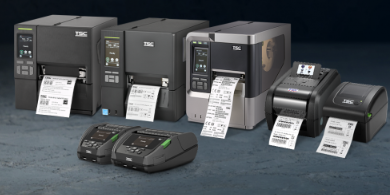
SAP Certifications 2025 – Modules, Careers & Trends
Introduction – Why SAP Skills Dominate Enterprise IT in 2025
In 2025, few enterprise technologies rival SAP in global impact. From finance to supply-chain analytics, SAP runs the backbone of more than 400,000 organizations worldwide. As companies transition to SAP S/4HANA Cloud Public Edition and integrate AI automation, professionals certified in SAP solutions have become the most sought-after specialists in enterprise IT.
SAP certifications verify your technical and functional expertise across modules such as Finance, Human Capital Management (HCM), Sales, Procurement, Analytics, and Development. Also, these SAP certification exams open doors to high-paying jobs and long-term global careers.
This 2025 guide explains every major SAP module, the new exam structure, career paths, salaries, and trends that are shaping the next generation of enterprise professionals.
Why SAP Certifications Matter in 2025
1. Universal Enterprise Adoption
Over 77 % of global transaction revenue passes through an SAP system. Certified professionals are essential for smooth implementation and support.
2. Cloud Transformation
As S/4HANA Cloud becomes the default ERP solution, companies urgently need consultants who understand migration, configuration, and integration.
3. Premium Salaries
SAP-certified experts often earn between $95 000 and $180 000 annually – one of the highest averages among enterprise software roles.
4. Global Mobility
SAP credentials are recognized in more than 190 countries – ideal for professionals seeking cross-border opportunities.
SAP Certification Framework 2025
SAP’s certification system is built around roles, modules, and levels.
| Level | Description | Target Audience |
| Associate | Validates fundamental knowledge and configuration skills | Beginners / Implementation Consultants |
| Specialist | Focuses on a sub-module or integration area | Experienced Consultants |
| Professional | Confirms advanced, project-lead expertise | Senior Architects / Project Managers |
Top SAP Modules and Certifications to Pursue in 2025
| Certification Code | Module / Area | Key Focus in 2025 | Typical Salary (USD) |
| C_TS452_2410 | SAP S/4HANA Procurement | Purchasing, MM integration, Fiori apps | $105 000 – $140 000 |
| C_TS462_2022 | Sales and Distribution (SD) | Order management, pricing, billing | $110 000 – $145 000 |
| C_TS4CO_2024 | Controlling (CO) | Cost center, profit analysis, integration | $115 000 – $150 000 |
| C_TS4FI_2024 | Finance (FI) | General ledger, tax, asset accounting | $120 000 – $155 000 |
| C_S4CPB_2508 | Public Cloud Edition – Implementation | Configuration of S/4HANA Cloud | $115 000 – $150 000 |
| C_TS422_2504 | Production Planning (PP) | Manufacturing process automation | $110 000 – $145 000 |
| C_HRHPC_2411 | HCM and Payroll for S/4HANA Cloud | Employee data, time management | $95 000 – $135 000 |
| C_ARCON_2408 | Ariba Contracts Management | Procurement & sourcing automation | $100 000 – $140 000 |
| C_SAC_2410 | SAP Analytics Cloud (SAC) | Planning and dashboards | $115 000 – $150 000 |
| C_CPI_2506 | SAP Integration Suite (CPI) | API management and connectivity | $120 000 – $160 000 |
SAP S/4HANA Finance (FI)
The Finance certification focuses on accounting, taxation, and financial reporting.
Skills Validated
- Universal ledger and financial close processes
- Integration with Controlling and Asset Management
- Tax and currency handling in S/4HANA
- Fiori-based analytics
Roles: SAP FI Consultant · Finance Analyst · ERP Manager
Salary: $120 000 – $155 000
See also: Exploring The Role Of Oled Manufacturers In Modern Technology
SAP Controlling (CO)
Why It’s Essential: Helps businesses plan and control costs efficiently.
Core Topics
- Cost center & profit center accounting
- Internal orders and profitability analysis
- Actual vs planned cost variance reports
Roles: SAP CO Consultant, Financial Controller
Salary: $115 000 – $150 000
SAP Procurement (MM / S/4HANA Procurement)
Key Areas
- Material master configuration
- Purchase requisition to invoice workflow
- Supplier management via Ariba Integration
Roles: Procurement Analyst · MM Consultant · Supply-Chain Coordinator
Salary: $105 000 – $140 000
SAP Sales and Distribution (SD)
Exam Code: C_TS462_2022
Skills Covered
- Order to cash cycle
- Shipping & billing automation
- Pricing configuration and credit management
Roles: SD Consultant, Sales Operations Lead
Salary: $110 000 – $145 000
SAP Production Planning (PP)
Focus Topics
- Master data (BOM, Routing, Work Centers)
- MRP and capacity planning
- Shop-floor control integration
Roles: Manufacturing Consultant · Production Planner
Salary: $110 000 – $145 000
SAP Human Capital Management (HCM)
With AI HR tools and SuccessFactors integration, HCM skills are more valuable than ever.
Skills
- Employee life-cycle and payroll processing
- Workforce planning and time tracking
- Integration with Finance and Analytics
Roles: HCM Consultant, HRIS Analyst
Salary: $95 000 – $135 000
SAP Analytics Cloud (SAC)
About: Analytics and forecasting platform that combines BI, planning, and AI insights.
Core Skills
- Data modeling and connectivity
- Predictive analysis and story design
- Collaboration dashboards
Roles: BI Consultant, Data Analyst, Finance Planner
Salary: $115 000 – $150 000
SAP Integration Suite (CPI)
Why It Matters: Most S/4HANA projects involve multi-system integration.
Skills
- API management and event mesh
- Cloud connector and security tokens
- Monitoring and error handling
Roles: Integration Developer · Middleware Architect
Salary: $120 000 – $160 000
SAP Ariba and Procurement Cloud
Purpose: Digital procurement and supplier collaboration.
Skills Gained
- Source-to-pay automation
- Contract management and compliance
- Integration with S/4HANA Finance
Salary: $105 000 – $145 000
SAP Public Cloud Implementation (C_S4CPB_2508)
The flagship certification for S/4HANA Public Edition consultants.
Why It’s Trending
- Covers complete implementation cycles
- In-depth Fiori and AI-embedded features
- Required for SAP partners in 2025
Salary: $115 000 – $150 000
SAP Career Path 2025 (Roadmap)
| Career Stage | Certifications | Roles | Average Salary (USD) |
| Beginner | C_TS452 / C_TS462 / C_S4CPB | Associate Consultant, Analyst | 85 000 – 105 000 |
| Intermediate | C_TS4FI / C_TS4CO / C_TS422 | Functional Consultant, Team Lead | 110 000 – 135 000 |
| Advanced | C_CPI / C_SAC / C_ARCON | Solution Architect, Integration Lead | 130 000 – 160 000 |
| Expert | Professional / Specialist Level | Project Manager, SAP Architect | 150 000 – 200 000 + |
Skills Validated by SAP Certifications
- ERP architecture and implementation
- Business process optimization
- Financial accounting and reporting
- Supply chain and logistics automation
- Human capital management integration
- Data analytics and visualization
- SAP Fiori UI and custom extensions
- Cloud connectivity and API development
How to Prepare for SAP Certifications
- Study Official Learning Hub Content – Updated exam guides and simulation questions.
- Join SAP Learning Journeys – Interactive modules that map progress to specific certs.
- Practice in SAP Trial Systems – Hands-on configuration builds real competence.
- Engage with SAP Community Forums – Exchange troubleshooting tips and exam insights.
- Review Implementation Case Studies – Understanding business flows is critical for functional roles.
- Focus on Integration Scenarios – Cloud connectivity is heavily tested in 2025 exams.
- Keep Up with Releases – SAP updates content quarterly (Spring, Summer, Winter).
Future Trends in SAP Certifications (2025 and Beyond)
- AI and Machine Learning Integration – SAP Embedded AI skills are appearing in exam blueprints.
- Sustainability Management – SAP ESG and carbon-accounting modules gaining traction.
- Cloud-First Implementations – S/4HANA Public Edition now dominates new projects.
- Rise of Cross-Skill Professionals – Blending functional expertise (FI/MM) with technical skills (CPI/SAC).
- Low-Code Customization – Developers must learn SAP Build Apps and Fiori Elements.
- Micro-Certifications for AI and Analytics – SAP Learning Hub introduces stackable credentials.
Common Mistakes to Avoid
- Memorizing without hands-on practice
- Using outdated PDFs or VCE files instead of official learning journeys
- Ignoring integration topics (FI ↔ MM ↔ CO ↔ SD)
- Neglecting Fiori interface questions
- Failing to understand business context behind configuration
Average Salaries by Role (2025 Global Data)
| Role | Core Certifications | Average Salary (USD) |
| SAP Functional Consultant (FI/MM/SD) | C_TS4FI, C_TS452, C_TS462 | $110 000 – $140 000 |
| SAP Technical Consultant (ABAP/BTP/CPI) | C_CPI, C_SAC | $120 000 – $160 000 |
| SAP HCM or SuccessFactors Expert | C_HRHPC | $100 000 – $135 000 |
| SAP Solution Architect | Professional Level | $145 000 – $190 000 |
| SAP Project Manager | Multiple Modules + Experience | $150 000 – $200 000 + |
FAQs
Q1: Which SAP certification is best for beginners in 2025?
A: Start with SAP S/4HANA Procurement (C_TS452_2410) or Sales and Distribution (C_TS462_2022) to understand core ERP processes and gain implementation exposure.
Q2: Do SAP certifications expire?
A: Yes, SAP requires re-certification whenever a new software release is issued (usually every 1-2 years).
Q3: How long does it take to prepare for an SAP exam?
A: On average 2-3 months of study with daily practice in SAP Learning Hub or sandbox systems.
Q4: Are SAP certifications worth it in 2025?
A: Absolutely – they remain among the most lucrative and globally recognized enterprise IT credentials.
Q5: Can you get SAP certified without experience?
A: Yes, Associate-level certifications require no prior project experience and serve as entry points into consulting roles.
Final Thoughts
SAP certifications in 2025 stand as a gateway to prestigious careers across finance, supply chain, analytics, and cloud technology.
As the enterprise landscape shifts toward AI-driven automation and S/4HANA Cloud transformation, certified professionals will lead the change.
Whether you’re an aspiring consultant or a seasoned architect, SAP’s modular structure offers a path for every career stage. Invest in continuous learning, explore cross-module integration, and embrace new cloud tools.
In an era where business runs on intelligent ERP, SAP-certified experts are the strategic builders of the digital enterprise future.



